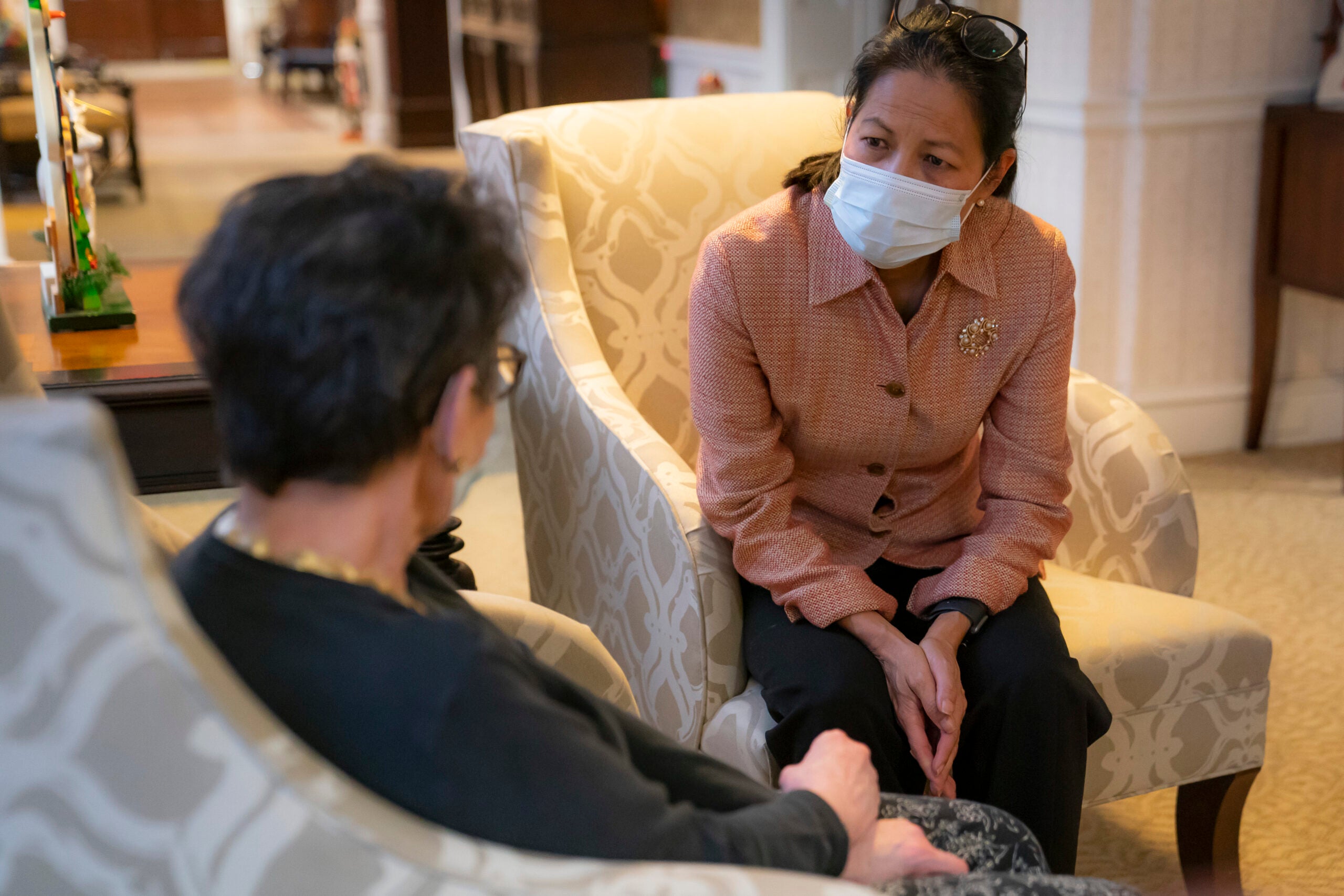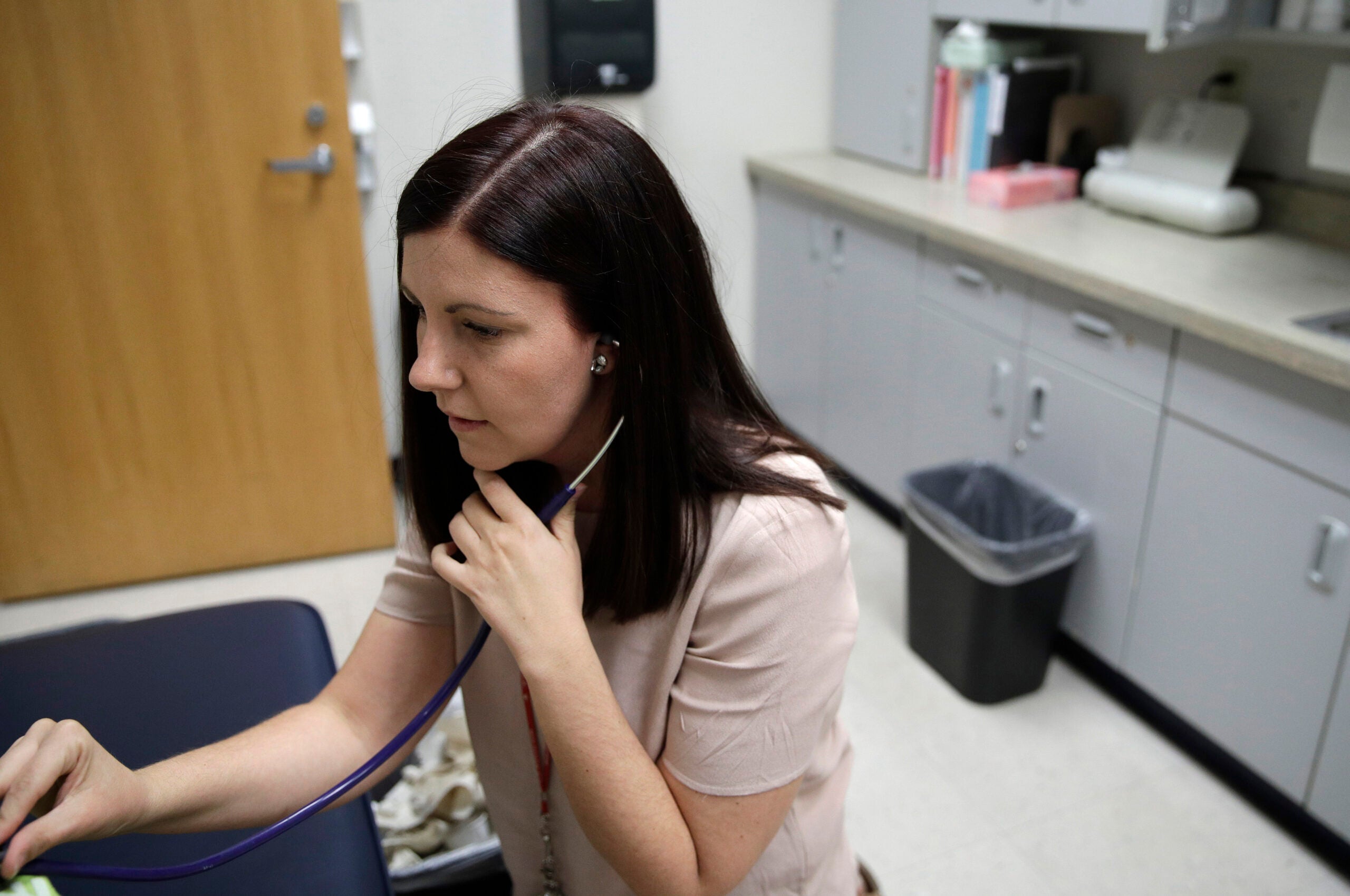Hospitals are trying to get a handle on how many nurses, therapists and pharmacists they’ll need in the future — a difficult thing to estimate, given that many older workers are putting off retirement.
Some hospitals in Wisconsin have done a lot to keep older, experienced employees from leaving: lightening their workload, scheduling them for better hours, and improving the lighting. But many employees in key positions are over age 55, and sooner or later will retire.
Jody Johnson, vice president of workforce and clinical practice at the Wisconsin Hospital Association, said that since the recession, hospital hiring has been flat.
Stay informed on the latest news
Sign up for WPR’s email newsletter.
“Right now we are in a holding pattern,” she said. “Baby boomers are not retiring as expected due to economic concerns. So at some point we will see them retire, and hospitals are now planning for that.”
The WHA says about 20 percent or more of workers who deal directly with patients are over age 55, including registered nurses, pharmacists, respiratory therapists and laboratory technicians.
“We could see a large number of them retire in a short period of time or we could see a slow trickle of retirement,” said Johnson. “It’s really dependent on that particular nurse and the accommodations they may receive within the hospitals as far as work-life balance or scheduling.”
The current vacancy rate for nurses statewide is 6.8 percent, up just a bit from three years ago.
Wisconsin Public Radio, © Copyright 2024, Board of Regents of the University of Wisconsin System and Wisconsin Educational Communications Board.







